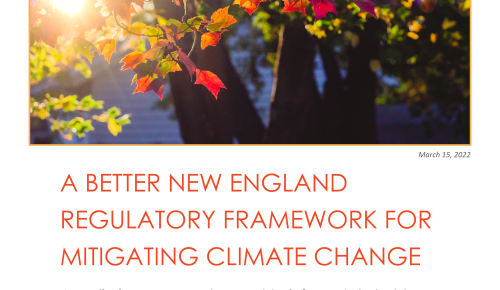Stakeholder Engagement & Representation
Vigorous stakeholder engagement improves decision-making and planning on energy and environmental topics. It is particularly important in a sector where data availability and technical knowledge tends to be concentrated among a few industry players. Synapse helps even out that imbalance by making meaningful participation more accessible to public interest clients.

Overview
Synapse helps several of our clients engage more effectively in working groups and other stakeholder processes. Other clients come to us to help them run more effective stakeholder processes by providing facilitation support, analysis, and materials. We also provide ongoing representation services to clients participating in wholesale market committees.
Working Group Participation
Many jurisdictions have turned to working groups in parallel with standard regulatory proceedings to incorporate varied perspectives in energy sector decision-making. But these discussions can be both resource-intensive and technically complex. Synapse partakes in these working groups to identify the issues most pertinent to our clients and to develop recommendations for the path forward. We help government agencies guide decisions in keeping with best practices, and we provide public interest stakeholders with a solid technical standing for their engagement. A good example is our assistance in utility Integrated Resource Planning working groups, where we and our clients can request modeling improvements before a utility embeds final modeling results in its filed plan. The result is often a more transparent and streamlined proceeding.
Facilitation Support & Materials
Whether we are facilitating ourselves or providing technical support, Synapse works to ensure stakeholders are equipped with the information they need to engage. To that end, we create clear and accessible presentations, factsheets, and reports available to the public. We also strive to get the right mix of voices in the conversation, which often means an array of policymakers, regulators, utilities, consumer advocates, additional technical experts, community representatives, and environmental advocates.
One of our most extensive and ongoing stakeholder projects is New England’s Avoided Energy Supply Component (AESC) study that we manage on behalf of the AESC Study Group. This group is a collaboration of New England’s utilities, consumer advocates, low-income advocates, environmental organizations, and state agencies. The modeling study is technically and politically complex and it is the only example we are aware of in which multiple states in a region coordinate to calculate the benefits of energy efficiency programs on a consistent basis.
ISO/RTO Representation
As Independent System Operators (ISO) and Regional Transmission Organizations (RTO) continue to adapt (some slower than others) to less centralized electricity grids, consumer advocates and other public interest stakeholders play an important role in ensuring wholesale markets meet public needs for reliability, equity, and sustainability. We represent these clients in stakeholder forums and also keep them up to date on the discussions that impact their work. We also work with companies who provide alternatives to generation from legacy power plants—such as energy efficiency, demand response, and storage—to improve the approach to these resources in wholesale markets.




